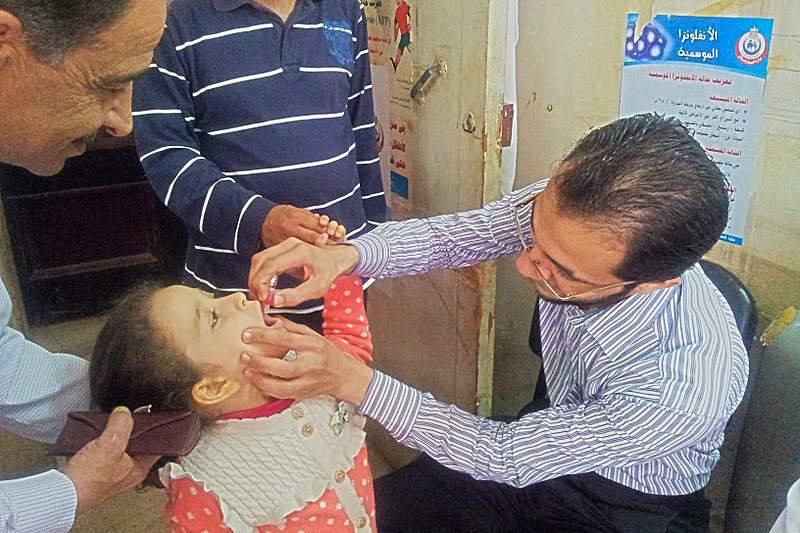One third of Egyptian males aged 15 to 29 hope to migrate to a foreign country, while half of females in the same age group have been subjected to sexual innuendos from a complete stranger. These statistics and many more are listed in detail in a new survey detailing the current situation of Egyptian youth.
On 15 February, the Population Council, an international, non-governmental organization concerned with health, poverty and gender issues, held a press conference in Cairo to discuss the findings of its most recent publication, a Survey of Young People in Egypt (SYPE). According to the Population Council, SYPE is the largest poll of its kind ever conducted in the Arab world, with over 15,000 individuals interviewed.
The survey focuses on Egyptians aged 10-29, an age group which makes up roughly 40 percent of the total population, according to the presiding panel. In order to obtain an accurate sample, the organization took the unprecedented measure of including every Egyptian governorate in their research. The questionnaires devised for the survey focused on the socio-economic conditions of the targeted demographic, and were sent to the World Bank’s “Questionnaire Clinic” in Washington, DC prior to being used on the chosen sample. The target demographic was broken down into six subdivisions—three per gender.
The panel of speakers, headed by regional direct of the Population Council Safaa el-Kogali, found the results distressing.
“This age group is a demographic gift,” said el-Kogali, pointing out that having most of the country’s population at a working age will help create a state of low economic dependency. However, in order for that shift to be successful, drastic changes must be made, mainly to Egypt’s current system of social services and development planning, not to mention the institutions directly influencing its younger generations.
“A failure in these institutions,” el-Kogali predicted, “will turn our demographic gift into a demographic burden.”
The survey focuses on “five key life transitions”—health, education, employment, family formation, and civic and political engagement.
The first section reveals a stunning lack of concern among younger people towards health issues in general, particularly personal hygiene. Further cause for concern comes with the survey’s findings that 82 percent of young girls have undergone forced genital mutilation, and 93 percent of the male sample has never received sexual education of any kind.
Also on the panel was Dr. Judy Barsalou, a representative of the Ford Foundation, one of the survey’s primary financial backers. Having been involved in the process, Barsalou said she appreciates the survey’s unprecedented scale, but is troubled by the facts it uncovered.
“Some of things that really struck me immediately in the results was that three quarters of young Egyptians are not discussing reproductive health or sexuality with their family,” said Barsalou. “There are some remarkable findings that have emerged through this survey that suggest to me that we have our work cut out for us in the coming decades.”
Barsalou proceeded to list a series of statistics she feels need immediate attention, saying that one third of rural young women are completely unaware of the existence of HIV and AIDS, meaning they are completely unable to protect themselves. From the information gathering process, Barsalou recalled that out of nearly 2500 young married women between the ages of 15 to 29, only one was childless.
“There is much to be done,” she says. “Both at the family level and the policy-making level.”
Ziad el-Rifae of the United Nations Population Fund, agreed with Barsalou. “These findings have to be examined thoroughly and transformed into effective policies,” el-Rifae said.
El-Rifae, along with Magued Osman of the Information and Decision Support Center, also on the panel of speakers, attributed the current situation to a general lack of preparation, combined with a similar lack of education. The education system was also criticized. According to SYPE, 16 percent of Egyptians aged 10-29 have never been to school.
"Young people today need role models, not critics," said el-Rifae.Minister of Population and Family Moushira Khattab, also on the panel, revealed matter-of-factly that she had overseen a similar research project six years ago, but “the results were so depressing, we couldn’t publish them.”
She added to the audience, “as you all know, in 2004 there wasn’t as much freedom of expression as there is today, so we couldn’t even discuss the findings back then.”
“This time, we’ll publish our reports no matter what,” Khattab said.
While the minister largely praised the survey, she did take issue with one aspect, saying, “I do wish that the survey had been limited to those under 18 years of age, since that is, according to the law, the limit of youth.”
Khattab also asked the project leaders and her colleagues on the panel, “Do we really have drug problems among our younger generations, or are they just health problems?” and questioned the survey’s usefulness in relation to the creation of a “database of similar information.”
SYPE is the latest in a long line of similar projects initiated by the Population Council. Established in 1952, the council exists today in over 60 countries. In 1997, the organization’s Egyptian offices published the Adolescence and Social Change Survey, or ASCE, the results of which have since provided important resources for adolescent programs throughout the country. That survey’s findings provide a basis for SYPE, which serves as a follow-up to ASCE, being essentially a closer examination of a wider demographic.
While the Population Council largely focuses on youth around the world, many of its members believe the information can be used to benefit all, regardless of age group and demographic.
As Safaa el-Kogali says, “An important goal of what we do is to communicate the results of our work to governments, organizations, and individuals so that they can make better informed decisions on the critical issues that effect their daily lives as well as their future.”




